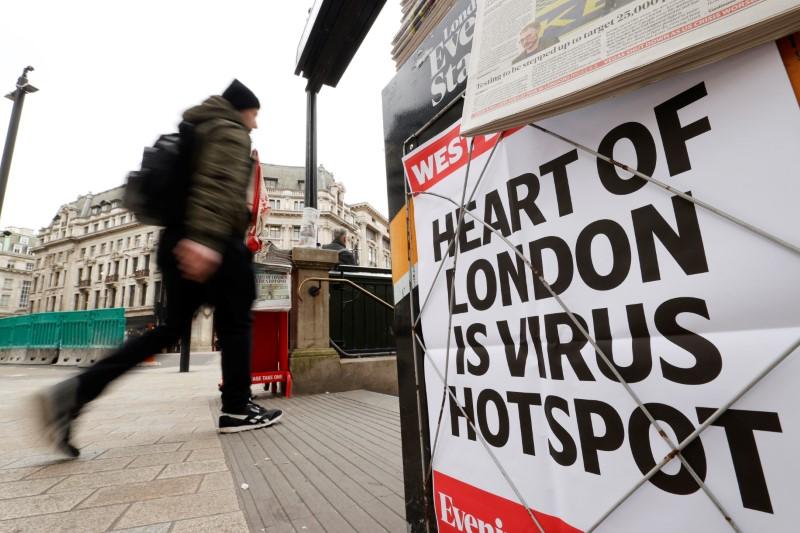TO make tests for the coronavirus disease (COVID-19) more accessible to the public, the Philippine Red Cross (PRC) will bring its saliva testing to strategic areas such as malls, factories, and offices.
The PRC began using the saliva testing method on Monday in its laboratories in Manila and Mandaluyong cities.
PRC chairman Sen. Richard Gordon said that aside from “factories, malls, and other strategic places,” the testing can also be brought tourist spots.
“We will bring it closer to the people,” he said.
Gordon assured the public that bringing the COVID-19 testing out of laboratories will not endanger the general public.
“There is no need to have swabbers and PPE (personal protective equipment). The public themselves can take their samples and get their saliva specimen,” he said.
Gordon also assured the public that saliva testing is accurate and reliable when it comes to detecting the novel virus.
“Our test is 98.11 percent reliable. When you compare it to the RT-PCR test, it is 99 percent,” he said.
Making saliva testing more accessible to the people can also lead to its lower cost, Gordon said.
“With more tests, this P2,000 can still go down to probably P1,500,” he said.
An RT-PCR costs from P4,500 to P5,000 in private laboratories and about P3,800 in public testing centers.
For those looking to get tested, they should not eat, drink any liquid, brush their teeth, use mouthwash, smoke or vape 30 minutes before undergoing the test.
“In other words, their mouths should be clear so that there won’t be any obstructions,” Gordon said.
Vaccine czar Carlito Galvez Jr. warned the public of a shortfall in vaccine supply, which he said has prompted some pharmaceutical firms to reduce the volume they have committed to several countries by 50 percent to 60 percent.
Galvez said the Philippines has not been affected yet but the government has drawn up plans just in case, like purchasing vaccines from multiple companies.
Galvez spoke at the launch of “Explain, Explain, Explain,” an information drive on the COVID-19 vaccination program, in Pasig City.
The Philippines is buying 148 million doses from seven companies.
This is separate from the 30 million to 40 million that the country is getting from Pfizer, through the COVAX Facility. The Philippines would be paying 5 percent of the cost of the vaccine instead of getting it for free as previously agreed on.
Galvez said the Philippine is renegotiating with the Serum Institute of India, a partner of AstraZeneca, for access to additional vaccines after AstraZeneca’s European manufacturer reduced its commitment due to the high demand and limited supply.
The Philippines, which has secured at least 20 million doses from AstraZeneca, will get its vaccines from AstraZeneca’s Thailand office. SII is supplying the Philippines some 30 million doses of Novavax.
The country is expected to have a mini-rollout of vaccines in February when the first batch of vaccines from Sinovac and Pfizer, through the COVAX Facility, is delivered.
Galvez said AstraZeneca is expected to deliver its first batch of vaccine in the first quarter of the year, while vaccines from Moderna, Novavax and Johnson and Johnson by the third quarter of the year.
Galvez said the country is targeting to vaccinate 70 million Filipinos this year.
INDEMNIFICATION
In a move to boost public confidence on the government’s vaccination program, Sen. Nancy Binay on Monday filed Senate Bill 2015 or the Vaccine Indemnification Fund Act, which seeks to indemnify individuals who will have adverse reactions to COVID-19 vaccines.
“This shall be the primary mode of compensation and an alternative to long-drawn, expensive court litigation that constrain vaccine recipients from pursuing bona fide claims for vaccine-related injuries,” Binay said in the explanatory note.
She said the compensation program will be an important component in the success of the government’s vaccination program since a big number of Filipinos are not willing to be inoculated.
Binay said funds for the compensation “shall be subsidized by the pharmaceutical companies which will supply the government with the vaccines by reserving at least one percent of the contract price.”
The funds needed for the initial implementation of the program will be charged against the Department of Health’s 2021 budget. — With Jocelyn Montemayor and Raymond Africa





